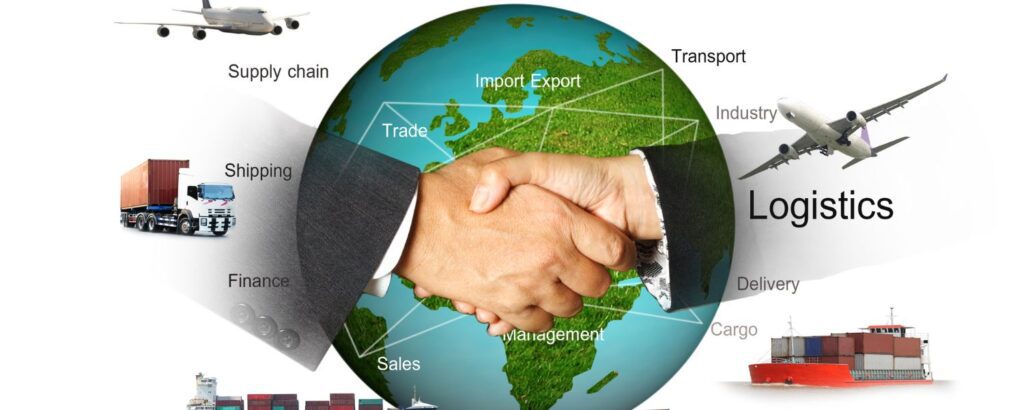In an era of increasingly prominent environmental concerns, sustainable logistics has become a crucial aspect of modern supply chain management. The logistics industry, known for its significant environmental impact, is now shifting towards sustainable practices to reduce carbon emissions, enhance efficiency, and promote social responsibility. This blog explores the importance of sustainable logistics, its practices, and its benefits to businesses and the environment.
What is Sustainable Logistics?

Sustainable logistics is adopting eco-friendly practices within the logistics and supply chain industry. It involves minimizing the environmental impact of transportation, warehousing, and distribution activities.
Key aspects include reducing carbon emissions, optimizing resource use, and implementing sustainable innovations. Examples of sustainable logistics include using electric vehicles for transportation, energy-efficient warehouses, and adopting renewable energy sources.
Importance of Sustainability in Logistics and Transport

1. Mitigating Climate Change
The logistics sector significantly contributes to global carbon emissions. By adopting sustainable logistics practices, such as using electric vehicles and optimizing delivery routes, companies can dramatically reduce their carbon footprint, helping to combat climate change and its associated impacts. This highlights the importance of sustainability in logistics.
2. Reducing Air Pollution
Sustainable logistics involves using cleaner modes of transport and energy-efficient practices, which reduce the emission of pollutants. This improves air quality and better health outcomes for communities near logistics hubs. Sustainable logistics solutions, such as adopting electric or hybrid vehicles, contribute directly to environmental sustainability.
3. Resource Conservation
Sustainable logistics promotes the efficient use of resources, such as fuel, materials, and energy. This helps conserve natural resources and ensure their availability for future generations. Implementing logistics in the supply chain can involve practices like using recyclable packaging and optimizing warehouse energy use, aligning with principles of industrial sustainability.
4. Operational Efficiencies
Implementing sustainable logistics can lead to greater operational efficiencies. For example, optimizing delivery routes and using energy-efficient warehouses can reduce costs and improve overall logistics performance. These logistics examples demonstrate how sustainable innovation can drive both economic and environmental benefits.
5. Enhancing Corporate Reputation
Companies that adopt logistics practices can enhance their corporate reputation. This can increase customer loyalty, attract environmentally conscious investors, and provide a competitive advantage in the marketplace. Sustainable logistics solutions that promote transparency and sustainability reporting further solidify a company’s commitment to environmental sustainability.
Sustainable Logistics Practices

Several practices can help make logistics more sustainable. These include:
1. Green Transportation
Using electric or hybrid vehicles, optimizing routes to reduce fuel consumption, and implementing driver training programs to promote eco-friendly driving habits.
2. Energy-Efficient Warehousing
Utilizing energy-efficient lighting, heating, and cooling systems in warehouses, and investing in innovative building technologies to monitor and reduce energy use.
3. Packaging Optimization
Reducing packaging materials, using recyclable or biodegradable packaging, and designing packaging for easy recycling.
4. Supply Chain Collaboration
Working with suppliers and partners to promote sustainability throughout the supply chain. This includes selecting suppliers with strong environmental practices and sharing best practices for sustainability.
Principles of Sustainability

The principles of sustainability in logistics are guided by the three pillars of sustainable development: environmental, social, and economic sustainability. These pillars create a balanced logistics model.
1. Environmental Sustainability
Environmental sustainability focuses on reducing the environmental footprint of logistics operations.
- Minimizing Waste: Implement recycling, use biodegradable packaging, and optimize inventory to reduce waste.
- Reducing Emissions: To reduce greenhouse gas emissions, use electric or hybrid vehicles, optimize delivery routes, and invest in renewable energy.
- Conserving Resources: Utilize energy-efficient technologies, water-saving methods, and sustainably sourced materials.
2. Social Sustainability
Social sustainability ensures fair labour practices, promotes health and safety, and contributes to community well-being.
- Fair Labor Practices: Provide fair wages, safe working conditions, and opportunities for training and development.
- Promoting Health and Safety: Implement regular health and safety training and ensure all equipment meets safety standards.
- Community Well-being: Engage with and invest in local communities, supporting education and environmental conservation efforts.
3. Economic Sustainability
Economic sustainability ensures logistics practices are economically viable and support long-term profitability.
- Cost Efficiency: Optimize routes and use energy-efficient technologies to reduce operating costs.
- Long-term Profitability: Enhance reputation and attract customers and investors who prioritize sustainability, leading to increased sales.
- Risk Management: Mitigate risks related to regulatory compliance and resource scarcity by proactively addressing sustainability issues.
Steps to Implement a Sustainable Logistics Model

Implementing a sustainable logistics model involves several steps:
1. Assessment and Planning
Conduct an environmental impact assessment to identify areas for improvement. Develop a sustainability plan with clear goals and targets.
2. Technology Adoption
Invest in technologies that support sustainability, such as electric vehicles, energy-efficient systems, and renewable energy sources.
3. Process Optimization
Streamline logistics processes to reduce waste and improve efficiency. This includes optimizing routes, improving load planning, and reducing idle times.
4. Stakeholder Engagement
Engage employees, suppliers, and customers in sustainability initiatives. Provide training and encourage participation in sustainability programs.
5. Monitoring and Reporting
Regularly monitor sustainability metrics and report on progress. Use this data to refine strategies and set new goals.
Benefits of Sustainable Logistics

The benefits of sustainable logistics are extensive, impacting environmental, social, and economic aspects. Here are some detailed points on how logistics provides these benefits:
1. Environmental Benefits
Sustainable logistics significantly reduces carbon emissions, lowers air and water pollution, and promotes the conservation of natural resources, contributing to a healthier planet. By adopting logistics solutions, companies can utilize cleaner transportation options such as electric vehicles and optimize routes to reduce fuel consumption.
Implementing energy-efficient practices in warehouses and using renewable energy sources further enhance environmental sustainability. These practices ensure that the logistics sector supports environmental sustainability by minimizing its ecological footprint and protecting ecosystems for future generations.
2. Social Benefits
Sustainable logistics practices improve working conditions, enhance community well-being, and increase social equity. For example, eco-friendly transportation reduces pollution, improving air quality and health outcomes for communities near logistics hubs.
Furthermore, companies focusing on logistics in the supply chain often engage in fair labour practices and community development projects, promoting social equity and inclusiveness. By prioritizing the well-being of employees and communities, businesses can foster a positive social impact and support the overall importance of sustainability in logistics.
3. Economic Benefits
Sustainable logistics offer significant economic advantages, including cost savings from increased efficiency, access to new markets, and enhanced brand reputation. Sustainable logistics solutions like optimizing delivery routes and reducing waste can lower operational costs.
Sustainable innovation, such as developing eco-friendly products and processes, opens up new market opportunities and attracts environmentally conscious consumers.
A solid commitment to sustainability enhances a company’s reputation, builds customer loyalty, and provides a competitive edge. These economic benefits highlight the critical role of industrial sustainability in driving business growth.
4. Risk Mitigation
Sustainable logistics help mitigate regulatory compliance and resource scarcity risks. As governments worldwide impose stricter environmental regulations, companies adopting sustainable practices are better positioned to comply with these laws and avoid penalties.
By focusing on logistics in the supply chain, businesses can ensure a steady supply of resources through efficient use and recycling, reducing the risk of shortages. Furthermore, logistics solutions help companies anticipate and adapt to market shifts towards greater environmental responsibility, ensuring long-term viability and resilience.
Conclusion
Sustainable logistics is integral to modern supply chain management, offering extensive benefits encompassing environmental, social, and economic dimensions. By adopting sustainable logistics practices, businesses can reduce carbon emissions, improve air and water quality, and conserve natural resources.
These practices also enhance working conditions, promote community well-being, and increase social equity, leading to significant social benefits. Economically, logistics drives cost savings, opens new markets, and boosts brand reputation while mitigating risks associated with regulatory compliance and resource scarcity.
VectorGlobe is committed to helping businesses achieve these benefits through our advanced solutions tailored to logistics. Our IoT devices, AI-enabled data processing, and real-time analytics optimize logistics operations, reducing environmental impact and improving efficiency.
By partnering with VectorGlobe, companies can implement effective, sustainable logistics practices, ensuring compliance with environmental regulations and enhancing their competitive edge in the market.
With VectorGlobe, businesses can fully realize the potential of logistics, contributing positively to the environment and society while achieving their operational and financial goals. Embracing logistics is not just a strategic move but a crucial step towards a sustainable future, ensuring long-term viability and resilience in an increasingly eco-conscious world.

